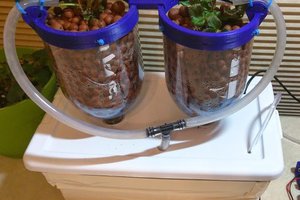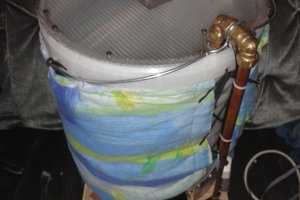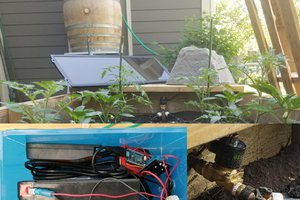Did you think that your houses's wood based heating system and the Internet of Things have nothing in common ? Guess again ! All of your heating systems may be linked, optimized and remotely controlled using a Raspberry Pi and the Internet.
The system as a whole is highly flexible and allows integrating :
- a virtually unlimited number of water heating sources
- the heating sources may be traditional (coal, gas, wood, biomass etc. based furnaces) or eco-friendly (solar water heater, geothermal etc)
- an electric water boiler is preferred as the final or single water heating source
- if present, the electric boiler may run off a virtually unlimited number of current sources, both traditional (power grid) or eco-friendly (solar micro grid, solar panel, wind turbine etc)
- a virtually unlimited number of heat exchangers (wall mounted radiators, floor integrated heating elements etc)
A lot of effort was put into making the hardware part of the system as cheap as possible, as flexible as possible, as generic as possible. For example the same electric module that is used to control a water electrovalve, may be used to select between two different current sources (depending on load, price etc) for the electric boiler.
The system's electronic layer is controlled using REST API to communicate with a webIOPI server running on a Raspberry Pi. This allows for the client or a third party to design a custom User Interface that resembles the house that is being heated ! I made the system generic enough to allow you to customize it to your needs and desires.
The current UI monitors the temperature of the water at the input source, three heating sources (solar panel, gas based and wood based), one electric boiler and three current sources (solar panel, wind turbine and national grid). The work is in progress on the current sources part, building in voltage sensors and such.

 Evan Salazar
Evan Salazar
 Theodor Hillebrand
Theodor Hillebrand
 Morning.Star
Morning.Star
 Kent Rueckert
Kent Rueckert